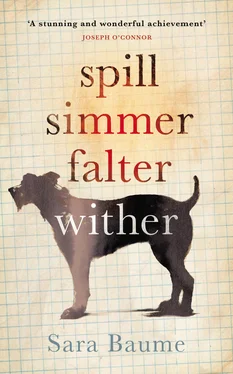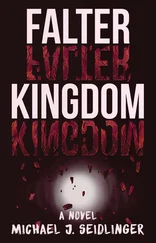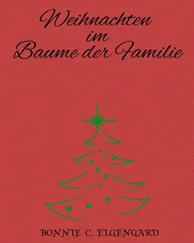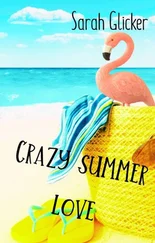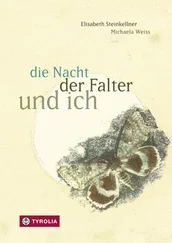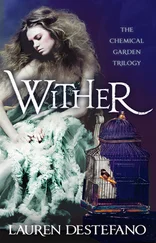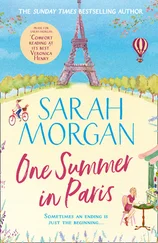After he retired, my father transformed his bedroom into a workshop for tinkering the board games into existence. There he spent his days sawing sheets of corrugated card, carving counters from bricks of balsa and painting over everything with his soft-bristled brushes. My father’s tinkerings left their trace in tiny mountains of wood shavings and flakes of cut card which sat on the carpet or got picked up by the door, swept into the hall and trampled across the house. After he retired, sometimes he’d tell me throwaway things and I’d scrabble them up like a squirrel snatching winter’s nuts. Sometimes on the sherbet line , he told me, the sealer would malfunction, then the pressure made the packets explode. The whole length of the belt there’d be a sugar cloud and we’d all be hacking and gagging into our mopcaps. My father hadn’t liked his job. He always made this much clear to me.
In his bedroom-workshop, he ruined a square of wallpaper by using it to soak the excess water from his soft bristles. One day I noticed how it had been dabbed into an intricate pattern, like a coded message. In his latest years, I’d bring him cups of tea and marmalade on toast and I’d see how he’d added a new mark to his square, how it expanded every day. After he died, I locked my father’s window, I locked his door. I laid the draught snake out. Now there’s nothing more to add. The message is ended and means everything it’s ever going to mean. And I suppose I know now everything I’m ever going to know about my father.

Come here, I’ve something to show you.
There are ninety-seven homemade board games inside the shut-up-and-locked room, and the ninety-eighth is here in this box. This is the best one, the only one I still sometimes try to play. It’s a version of a real game called Discovering Europe , I think, only based upon a continent of my father’s creation. See how he outlined his landmass, then sliced it up between borderlines. See how the name of each country is borrowed from an obscurely titled village or town land or valley or river. Now see how my father gave each country a national anthem, a national costume, a national sport and flag as well as a particular landscape and export industry. Here’s Garrowdiff and the Isle of Spence, Moyastree and Ballyooagle. Here’s Palace and here’s Butts. See how Dyssert is mostly desert and Creggish is particularly craggy, how all the citizens of Elphin wear green tights and the flag of Lisfinny is covered in fish.
It’s a game of luck, so you can play it with me if I roll the dice for you, pick up your chance cards, push your counter on a round trip to nowhere. In the low chair on the opposite side of the gameboard, you’re sitting up straight, watching intently. Are you waiting to be fed one of the coloured pieces? I’m sorry, these aren’t for gobbling.
My father told me that after he died the games were to be destroyed without exception. I expect he was ashamed of the snot-nosed and sticky-fingered child who dwelt within him, who tinkered. He didn’t want people to weigh the worth of his life in puerile toys. But I didn’t preserve them out of malice; it’s just that I don’t have a knack for destruction. And besides, I had a hand in them too. He asked for my help, and I helped. I did all the dullest and finickiest and most repetitive jobs. I kicked down the days with mind-numbing tasks on my father’s instruction when I wanted nothing but to be reading instead. I know he only came back to remain in the salmon pink house on his retirement because he was old and spent and had nobody to care for him, nobody but me. When I needed him least, he suddenly needed me to sand his balsa and lose at his games. By his eightieth year, my father was scarcely the height of a silverback and he had exactly the same achromatic hair, slouchy gait and pouchy eye sockets. It was hard to hate him then, to treat him cruelly. It would have been like kicking a puppy; it would have made me the troll he’d always led me to believe I was.
I never meant for what happened to happen. I’ve no more knack for concealment than I do destruction. Please understand, I never meant it.
Who were they? The people my father thought were going to come for his sloppy games and pass judgement on his life? Were they the people who asked me questions after mass, the people he shared his custard creams with, the people alongside whom he inhaled exploded sherbet? Whoever they were, or whoever he thought they were, they never came.
Your counter is in Bunraffy when you give in, curl up and sleep, and I play on alone. I steer thoughtlessly through the game for an hour or two, and after the finishing line is crossed, I feel a little better, for a while.

Sometimes, when I was a boy, my father tore sheets of paper from his graphed pad and gave them to me to draw pictures. But instead of trying to replicate items and aspects of my world, I turned the sheet onto its blank side and re-drew the pattern of the graph, meticulously. Hundreds of teeny-tiny squares, without picking up a ruler. Every now and again I’d make an attempt at forms, but curves and shading always straightened and slimmed and led me back inexorably to the grid. It made some kind of sense to me then. It helped to hold the smog at bay. I don’t know what happened to those drawings. I think my father threw them all away.
I’ve never looked through his stuff and I can’t explain exactly why it is I’m so incurious. I suppose there are clues about his life there in the shut-up-and-locked room, perhaps even some traces of my mother, but better to be content with ignorance, I’ve always thought, than haunted by the truth.

The sea relaxes into summer, turns from slate to teal to crystalline. The white horses fall back into ripples and until they recommence their watery gallivanting, there’ll be no sea-wrecked buoys to find on the rocks and beaches, no stir and shake to smash them, no lob and volley to run their broken pieces aground. It’s the season of scantiest harvest for my backyard collection of sea junk. Where the waves have most recently touched, now there are jellyfish instead. No smaller than coins, no larger than coasters. Even though they are beached, traces of poison remain in their floppy tails. Even though they are dead, they can still sting. And there are pinecones. There are always pinecones.
Now let me show you my junk-treasures. Here are my crabs. Not the severed claws you like to crunch but the shells of their backs, their elegant exoskeletons. I find them knotted into bladderwrack, crisping in the sun on the banks of rock-pools. I bring them home, rinse the stringy meat out, apply a lick of varnish to shield against the bleaching light. The edible crabs are smooth and curved like the red wood of a string instrument. The velvet crabs are fiddly to varnish; my soft bristles get stuck in the down of their carpeted backs. The common crabs have spots and spiked edges, like a pinking shears. Although brown-green under water, once dismembered and risen to the surface, their shells are baked to the colour of marmalade, Seville marmalade. The colour reminds me of Aunt’s open casket in the funeral home. Her cheeks had been bronzed by some blundering undertaker and the tanned head on the coffin pillow was a stranger to me, creepy as a ventriloquist’s dummy, only without the ventriloquist to make it seem harmless, even funny.
Here’s my driftwood. I prefer the pieces with swatches of crackled paint. I bring them home and nail them to the yellow walls, each abutting the next, joining the swatches. I think of it as a colossal jigsaw, an abstract assemblage of infinite proportions, and sometimes I wonder if, along with his overlong feet, my father bestowed me his restless compulsion for remaking.
Читать дальше
